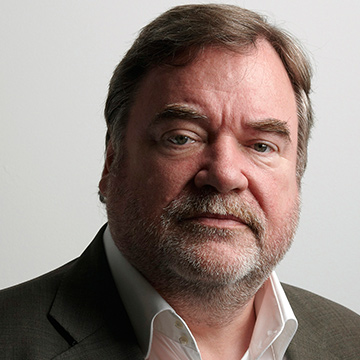
Paul Finch, OBE
Jury Chair
Programme Director,
World Architecture Festival
Paul Finch is programme director of the World Architecture Festival and editorial director of the Architectural Review and Architects’ Journal. History degree, Selwyn College, Cambridge. Editor, Building Design, 1983–94. Editor, Architects’ Journal, 1994–1999. Editor, The Architectural Review 2005–2009. Commissioner at the Commission for Architecture and the Built Environment 1999–2005. Chair, 2009–2014. Olympic Design Review chair 2005–2012. Co-editor, Planning in London since 1992. Honorary FRIBA 1994; Honorary member, Royal Society of Architects in Wales, 1996; honorary doctorate, University of Westminster, 2004; Honorary Fellowship, University College London, 2006; Honorary member, British Council for Offices, 2006; Honorary Fellow, Royal Incorporation of Architects in Scotland, 2012. Honorary membership, Architectural Association 2014. OBE for services to architecture 2002.
Photo: Courtesy of i2i Events Group

Dr. Munira Mirza
Deputy Mayor for Education and Culture
Munira advises the Mayor on his priorities for culture and education and leads the delivery of key programmes, including £40m of ‘Education and Youth’ investment in London. Munira has worked for a range of cultural and charitable organisations including the Royal Society of Arts, the independent think tank Policy Exchange and Tate. In 2009 she completed her PhD at the University of Kent. She has written and broadcast about social policy in the UK, including race relations, culture and education. Her book, The Politics of Culture: The Case for Universalism was published by Palgrave Macmillan in 2011. Munira is a member of Arts Council England, London Area Council; the Royal College of Music Council; and the Board of the Institute of Contemporary Art.
Photo: Greater London Authority
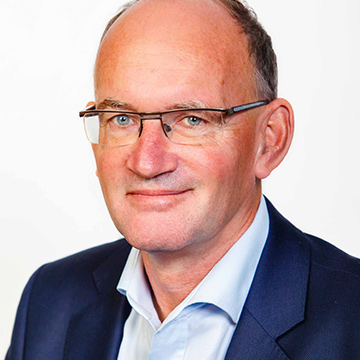
Neale Coleman, CBE
Deputy Chair,
London Legacy Development Corporation
Neale Coleman is the Mayoral Advisor on Tottenham and the Olympic and Paralympic Legacy, and Deputy Chair of LLDC. He was formerly the Mayor’s Advisor on London 2012, a post he held since the first days of London’s bid in 2003. Neale was a Board member of London 2012, the Olympic Bid company, and a Board member of the Olympic Delivery Authority from its inception. He has extensive experience in major regeneration projects, has chaired the Olympic Masterplan Reference Group, which led the work during the bid to deliver the Masterplan and planning consent for the Olympic Park. He co-chaired the Olympic Delivery Group, which oversaw all work on the Games immediately after the successful bid.
Photo: London Legacy Development Corporation
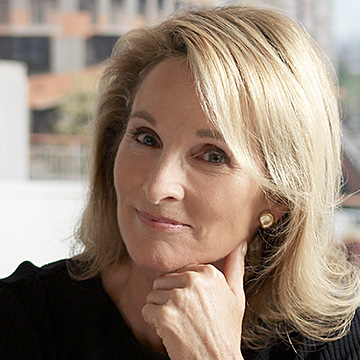
Amanda Burden
FAICP
Principal at Bloomberg Associates
From 2002–2013, Ms. Burden served as the New York City Planning Commissioner, initiating comprehensive rezoning plans for 124 neighborhoods — almost 40 per cent of the city — and catalyzing significant new housing opportunities throughout New York City’s five boroughs. Ms. Burden helped launch the Midtown Community Court in Times Square. 1983–1990, she served as Vice President for Planning and Design at the Battery Park City Authority. She was the recipient of the 2009 ULI J.C. Nichols Prize for Visionaries in Urban Development. She used the honorarium from the J.C. Nichols Prize to create the Urban Land Institute Urban Open Space Award, which recognizes outstanding examples of transformative and vibrant public open space. Ms. Burden holds an Honorary Doctorate in Public Administration from Pratt University. She was elected to serve on the Council for Foreign Relations in 2014.
Photo: David Eustace

David Edmonds
Chairman of the Governing Board of Kingston University, Board Member of the London Legacy Development Corporation
David Edmonds started his career in the Ministry of Housing and Local Government, later the Department of the Environment, spending several years as Chief of Staff to Michael Heseltine before becoming the senior official responsible for inner city policy. He then became Chief Executive of The Housing Corporation with responsibility for a large part of the government’s social housing policy. Moving to the City, he was Managing Director of the NatWest Group’s property portfolio, where he led the rebuilding of Tower 42, major office developments in Lombard Street and St James Square, and the redevelopment of two listed historic buildings in the heart of the City. He joined the initial Board of the Olympic Park Legacy Company (now the LLDC) and has chaired its Investment Committee from the outset, responsible for all the major developments within the Olympic Park. He chairs the joint venture with the London Borough of Newham which is carrying out the transformation of the Olympic Stadium.
Photo: Courtesy of David Edmonds
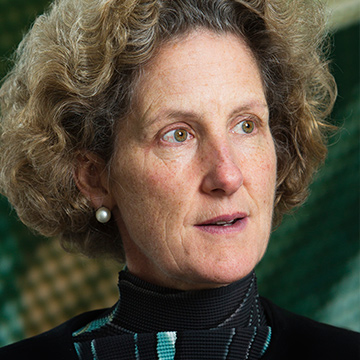
Louisa Hutton
Royal Academician
Founder of Sauerbruch Hutton
Louisa Hutton is an architect and founding partner of Sauerbruch Hutton. She is a visiting professor at Harvard Graduate School of Design. She previously taught at the Architectural Association in London. She is a member of the Curatorial Board of the Schelling Architecture Foundation, and was a Commissioner at CABE and a member of the Steering Committee for Germany’s Federal Foundation for Baukultur. In 2014 Louisa Hutton was elected as a Royal Academician of Arts. Louisa Hutton and Matthias Sauerbruch received the Erich Schelling Prize for Architecture in 1998 and the Fritz Schumacher Prize for Architecture in 2003, the International Honour Award for Sustainable Architecture in 2010 and the Gottfried-Semper-Architekturpreis 2013. Sauerbruch and Hutton gained international renown for their early engagement with sustainability in architecture and urbanism. Their office is best known for the Brandhorst Museum in Munich (2009), the Federal Environmental Agency in Dessau (2005) and the GSW Headquarters in Berlin (1999).
Photo: Kalle Koponen
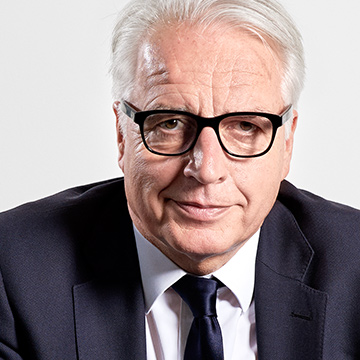
Martin Roth
Director,
Victoria and Albert Museum
Martin Roth became Director of the Victoria and Albert Museum in September 2011. Before this, he was Director General of the Staatliche Kunstsammlungen Dresden, overseeing 12 museums and galleries. During this time he created an extensive network of international partners, leading to numerous exhibitions overseas. From 1996–2001 Martin Roth was a member of senior management of the Expo 2000 in Hanover and Director of Thematic Exhibitions. From 1991 to 2000 he was Director of the German Hygiene Museum in Dresden, the first German science museum, and prior to that he was Curator at the Deutsche Historische Museum (1989-2001). He remains a personal member of the German Olympic Sports Federation. Martin Roth is a Trustee of the British Council and of the Musée des Arts Décoratifs in Paris. He is a member of both the Council of the Royal College of Art and the Court of Imperial College in London.
Photo: Thierry Bal
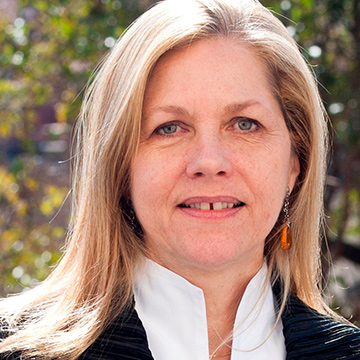
Martha Thorne
Executive Director of the Pritzker Architecture Prize, Associate Dean of IE School of Architecture & Design
Martha Thorne has occupied the position of Executive Director of the Pritzker Architecture Prize since 2005. She is also Associate Dean of IE School of Architecture & Design, Madrid/Segovia. From 1996 to 2005, she was curator at the Department of Architecture at The Art Institute of Chicago. She is the editor and author of several books on contemporary architecture, and author of numerous articles for architectural journals and encyclopedias. Ms. Thorne received a Master of City Planning degree from the University of Pennyslvania and a Bachelor of Arts in Urban Affairs from the State University of New York. She undertook additional studies at the London School of Economics. She served on the Board of Trustees of the Graham Foundation for Advanced Studies in the Fine Arts, and the Board of Advisors of the International Archive of Women in Architecture. She currently sits on the Board of Advisors for IE Higher Education and the jury for the ArchVision Women in Architecture Prize.
Photo: Courtesy of IE University
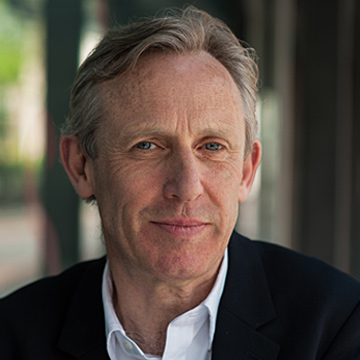
Alistair Spalding, CBE
Chief Executive and Artistic Director of Sadler’s Wells Theatre
Under Spalding, Sadler’s Wells has become the UK’s leading venue for dance, presenting a highly ambitious programme of cutting-edge dance in all forms, hosting world-class national and international companies and artists. In 2005, he announced his vision for Sadler’s Wells to become a producing house. He has since driven the commissioning, producing and co-producing of more than 80 shows, including acclaimed cross-art-form collaborations zero degrees, PUSH and Sutra. Spalding also created the position of Associate Artist to the theatre. There are currently 16 Associate Artists. He was appointed as a national member of the Arts Council of England Board in January 2009. He was awarded Le Chevalier des Arts et Lettres by the French Embassy in October 2005. In June 2012, he was appointed a Commander of the Order of the British Empire (CBE) for services to Dance. In July 2012 he was awarded an honorary doctorate from Middlesex University.
Photo: Courtesy of Sadler’s Wells

Nigel Carrington
Vice-Chancellor,
University of the Arts London
Nigel Carrington is the Vice-Chancellor of University of the Arts London, which has over 19,000 students across six Colleges and is Europe’s largest university for the study of arts, design, fashion, communication and performance. Over 40% of the University’s students are international and the University has an extensive network of relationships with peer institutions across the world. Before joining the University in September 2008, Nigel’s career was in the commercial sector, including 21 years with Baker & McKenzie, the international law firm, where he was Managing Partner of the London Office and Chairman of the Firm’s European Region, and seven years as Managing Director and Deputy Chairman of the McLaren Group, the world-leader in high performance automotive design and production. In addition to his responsibilities at University of the Arts London, Nigel holds a number of non-executive positions in the public and charitable sectors. He was educated at St John’s College Oxford (Law) and The Courtauld Institute of Art (History of Art).
Photo: University of the Arts, London

Malcolm Reading
Adviser to Jury
Architect and Competition Adviser,
Malcolm Reading Consultants
The Competition is being managed by Malcolm Reading Consultants. MRC has managed international architectural competitions for many UK Museums, including the V&A, National Maritime Museum and Natural History Museum. Its portfolio also includes competitions for the Solomon R Guggenheim Foundation, Mumbai City Museum, Glasgow School of Art and the Library of Foreign Literature in Moscow. Malcolm Reading is an architect and was previously Director of Design and Architecture at the British Council. A Trustee of the UK charity Historic Royal Palaces (2005–2014), he is Chairman of the Tower of London UNESCO World Heritage Site Consultative Committee, as well as Trustee of Edinburgh World Heritage, a Fellow of the Royal Society of Arts and an Honorary Fellow of the Royal Geographical Society. He is the current President of the Prix W architectural prize and a judge of the World Architecture News 21 for 21 Award and AIA (American Institute of Architects) UK Excellence in Design award.
Photo: Vibeke Dahl










